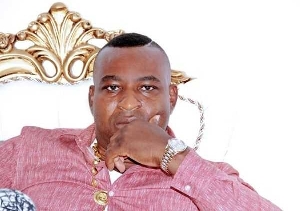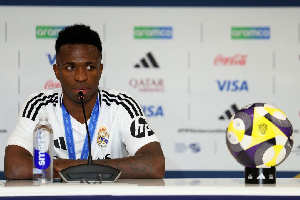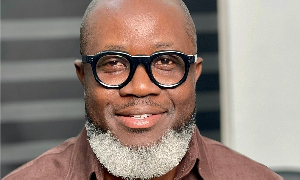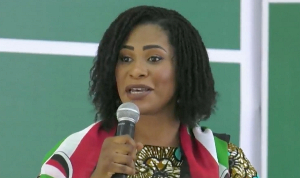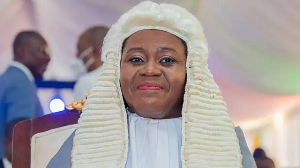Article by: James Gibney
Introduction by: Prof Lungu
INTRODUCTION
African politicians and military rulers stealing from their nations' coffers is now an old story. Of late, what is new is the willingness and capacity of Western governments and Interpol, in conjunction with international development bank-rolling entities (the World Bank and the IMF, in hope), to offer assistance to African leaders willing to invest a modicum of their political and personal capital to retrieve funds looted from their countries by leaders they've replaced.
As far as we can remember, no country, no person ever elected as president the last 50 years in West Africa, has expended as much political and personal capital at retrieving stolen money from their country than President Buhari's Nigeria. The last we heard, several former Nigeria officials basking in foreign capitals with pilfered Nigerian national funds have been arrested or detained, and thus far, unspecified amounts of stolen money have been retrieved by the Buhari regime.
We wish President Buhari good speed, powered by reflective, but determined will to retrieve every naira stolen by individual Nigerians and sequestered in foreign capitals in the West and other Caymain havens.
As we were getting ready to finalize this post, we read that the Managing Director of the International Monetary Fund, Ms. Christine Lagarde, would meet President Buhari and Mr. Kemi Adeosun, the Nigerian Finance Minister, about the plan by Mr. Buhari "to borrow as much as 900 billion naira abroad to fund a $11 billion deficit of plummeting oil prices, the equivalent of 2.16% of the Nigerian Gross Domestic Product (GDP). About as much would be borrowed from the domestic market.
Parallel to that, Buhari's government will improve on tax collection.
As crooked and ineffective to the fight against terrorism in northern Nigeria as former President Goodlock Jonathan was, Mr. Goodlock Jonathan signed into law the "Personal Income Tax (Amendment) Act mandating that the President and Vice President of Nigeria, governors and their deputies, would pay taxes on all their official and non-official earnings effective April 1, 2012, not just on their "non-official incomes."
Mr. Buhari aims to tighten up the tax collection further!
In addition, and perhaps even more important, President Buhari intends to lay greater emphasis on non-oil industries (agriculture, mining) production, while restricting importation of "toothpick" merchandises.
It is as if Nigeria is now poised to go back in history, like to the "Golden Age of Ghana", exactly where Ghana was in the 1950s and early-60s, under Dr. Kwame Nkrumah.
That is a good thing!
To the point, the plan by President Buhari to spend out of current deficits ought to be fully supported the IMF and the World Bank, in tandem with the retrieval of looted Nigerian resources so the entire world understand perfectly how and when the looters in Nigeria helped in the under-development and death of their fellow countrymen.
We understand also that the head of the IMF will as well visit Cameroon, Chad, and Niger, countries that, in addition to Nigeria, have been greatly beset by regional terrorism, little of which was created, funded, or weaponized internally, within those countries themselves.
Given the uncommon determination and demonstrated actions of Nigeria's Buhari to control corruption at home and to retrieve pilfered Nigerian resources, we believe strongly that the West (US, UK, Germany, France, in particular), and its development bankers (the IMF, World Bank), in coordination with Interpol, owe Nigeria all the support they need to retrieve every single niara looted and/or ever sent to the West for non-public purposes.
NOW THIS!
READ
‘THE LOOTING MACHINE' EXPLAINS WHY AFRICA ISN'T RISING
By JAMES GIBNEY
Bloomberg News
Sunday, January 3, 2016
"In one of Africa’s most celebrated surprises of 2015, Nigerian voters unseated President Goodluck Jonathan. The election of Muhammadu Buhari defied expectations of electoral fraud and violence, and his anticorruption platform sparked hopes for reform and economic growth.
Yet progress on both fronts has been slow and uneven. To understand why, pick up Tom Burgis’s The Looting Machine, a bracing look at why a continent blessed with one-third of the world’s hydrocarbon and mineral wealth remains mired in poverty and dysfunction.
A former Africa correspondent for the Financial Times, Burgis goes beyond the tales of spectacular venality among Africa’s “Big Men” – the world’s four longest-serving rulers are in African countries bursting with oil or minerals – to explain how the continent’s “resource curse” is sapping its development.
Nigeria is a case in point. Africa’s biggest oil producer gets more than 90 percent of its foreign earnings and two-thirds of its tax revenue from oil exports. Yet there are many reasons why that hydrocarbon bounty is a mixed blessing.
For starters, it can drive up the value of a nation’s currency, making other exports less competitive and imports more attractive. As Burgis points out, textiles used to be Nigeria’s most important manufacturing industry. But cheaper Chinese imports smuggled in by Nigerian gangs (an illicit trade worth more than $2 billion a year) have devastated the industry – one example of why Africa produces just 1.5 percent of global manufacturing output, despite its abundance of cheap labor.
Billions of dollars in oil revenues are also a tempting pot of money for bent politicians. One 2012 report said corruption had swallowed up $37 billion worth of Nigeria’s oil money over the last decade. That surpasses the annual economic output of more than half of the nations in Africa as well as Nigeria’s annual federal budget.
Such corruption has other toxic effects. Dirty money from bribes and kickbacks has to be laundered, and because those doing the cleaning don’t care so much about profit or productive investment, their infusions of cash distort the value of assets.
Nigeria’s reliance on oil for tax revenues also creates a perverse political dynamic: As Burgis puts it, “the ability of rulers of Africa’s resource state to govern without recourse to popular consent.” Instead of having to do right by taxpayers to win their votes, politicians focus on controlling and dispensing mineral wealth to bolster their patronage networks.
“Politics becomes a game of mobilizing one’s ethnic brethren,” Burgis notes – a contest with dangerous destabilizing effects in Nigeria’s fractious polity. In fact, as one Nigerian governor explains, if he failed to share the wealth, ill-gotten or otherwise, “I’ve got a big political enemy.”
Nigeria is far from the exception. At least 20 African countries are what the International Monetary Fund calls “resource-rich”: that is, their natural resources account for more than one-quarter of exports. Risking limb if not life, Burgis gamely takes readers around some of them, from the coltan mines of the Democratic Republic of the Congo and Guinea’s rich bauxite and iron ore deposits to the diamond fields of Zimbabwe.
Even as the names and histories of the different predatory leaders blur, one thing is clear: Their looting depends on an all-too-willing cast of outside partners, whether Western mining and oil companies that plunked down bribes and abetted massacres, shady Israeli middlemen or shell companies in the British Virgin Islands.
Particularly disquieting is Burgis’s description of the unsavory role played by the World Bank’s International Finance Corporation, which backed visibly corrupt, environmentally destructive, or just plain inequitable oil and mining ventures in Chad, Guinea and Ghana – all countries it was supposed to be helping.
If Burgis’s book were to be made into a movie, though, the star villain would have to be Samuel Pa, the bespectacled, bearded Zelig behind some of the continent’s most dubious recent resource deals. Over the course of several decades, Pa parlayed the connections he made as a Chinese intelligence operative and arms merchant into a sprawling, secretive consortium based in Hong Kong known as the 88 Queensway Group, not to mention a spot on the U.S. Treasury’s sanctions list.
Western criticism of China’s growing presence in Africa, Burgis writes, nonetheless carries a “distinct whiff of hypocrisy” that might make even King Leopold blush. Moreover, ordinary Africans stand to gain much from the $1 trillion or so that Chinese entities will reportedly plow into their continent by 2025.
That said, the tale of Pa and Queensway, which has its tentacles wrapped around oil holdings in Angola and Nigeria, diamond mines in Zimbabwe, and agriculture in Mozambique (to name just a few of its ventures), reeks of sulfur and brimstone.
As several seasoned African mining executives told Burgis, the Queensway Group reminded them of Cecil John Rhodes, the forerunner of those who “use the conquest of natural resources to advance political power and vice versa.”
One of the best hopes for curbing this rapacity and corruption may be to impose greater transparency on Africa’s outside business partners. The U.S. Securities and Exchange Commission, for instance, recently proposed a rule requiring U.S.-listed oil, gas and mining companies to publish details of their payments to governments.
Even China may see the writing on the wall. A few months after Burgis’s book came out this year, he reported that Pa had been detained in one of China’s deepening anti-corruption probes. Guess that scotches the prospect of any Pa Scholarships in the future."
SOURCE:
1. ‘The Looting Machine’ explains why Africa isn’t rising
(http://www.concordmonitor.com/home/20290224-95/the-looting-machine-explains-why-africa-isnt-rising).
2. Nigeria expects 2016 budget deficit to double to $11 bln - president, Dec 22, 2015, (http://af.reuters.com/article/idAFKBN0U51HS20151222).
‘The Looting Machine’ explains why Africa isn’t rising, by JAMES GIBNEY.
A GhanaHero.Com Reader, (5.0).
Posted by: Prof Lungu, www.GhanaHero.com (4 January 2016).
Support the Fair Trade Oil Share-Ghana (FTOS-GH)/PSA Campaign.
Visit www.GHanaHero.Com/FTOS_Gh_Campaign, for more information.
GhanaHero.com.
(Read Mo! Listen Mo! See Mo! Reflect Mo!).
Opinions of Wednesday, 6 January 2016
Columnist: Gibney, James


